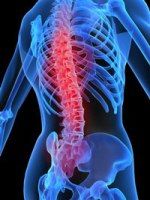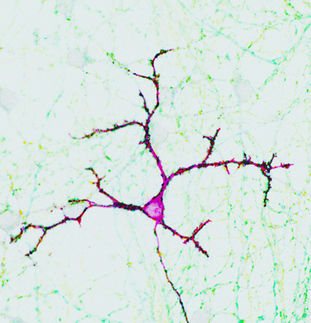Researchers Make New Finding about How Memory is Stored
Researchers at Wake Forest University School of medicine are the first to show that the location of protein-destroying "machines" in nerve cells in the brain may play an important role in how memories are formed - a finding with potential implications for treating Alzheimer's and other brain diseases. The research is published in the current issue of Learning & memory.
"We hope to exploit this finding to manipulate memory and find ways to make it better," said Ashok Hegde, Ph.D., associate professor of neurobiology and anatomy. "Our goal is to develop a new strategy for treating memory loss."
In mice, the researchers studied nerve cells in the hippocampus, a region of the brain associated with memory coding and storing of memory. Scientists know that the synapses, or connections between nerve cells, play an important role in memory. Each nerve cell in the brain connects with at least a thousand other nerve cells.
"When humans or animals learn and store what is learned in their memory, these connections between cells become stronger or weaker," said Hegde. "For example, if we learn to do something better, such as playing softball, the synapses that control our hand-eye coordination will become stronger. If we learn to ignore something, such as the barking of a neighbor's dog, then the synapses that control paying attention will become weaker."
In mice, scientists are able to determine the strength of these connections, and they studied how protein degradation affects connection strength. It is known that the degradation of proteins, which are made by cells to control cell functions, plays an important role in memory function. Levels of proteins are controlled by cylinder-shaped protein-destroying machines known as proteasomes that are located throughout all cell types. The Wake Forest researchers show that the proteasomes in different parts of nerve cells plays different roles in controlling synapse strength - and presumably in memory. They made this discovery by studying connection strength with and without a chemical that blocks activity of the proteasomes.
They found that proteasomes located in the dendrites, the branched projections of a neuron that act to conduct the electrical stimulation, limit the strength of the connections between cells. Proteasomes in the nucleus, the part of the cell that contains genetic material, help maintain synapse strength for long periods of time.
Their next goal is to learn to block proteasome activity specifically in the dendrites to increase the strength of synapses - and of memory. They are currently conducting studies in mice to block proteasome activity in the dendrites, using mazes to test memory.
"If we see a memory enhancement when we block the proteasome in dendrites, we can use this strategy to treat memory loss," said Hegde. He said the research is important because it has implications for treating human diseases that affect memory.
"Protein degradation is abnormal in many brain diseases, including Alzheimer's," said Hegde. "Having a thorough knowledge of how protein degradation works to changes synapses is a first step to finding a cure for memory loss."
Most read news
Other news from the department science

Get the life science industry in your inbox
By submitting this form you agree that LUMITOS AG will send you the newsletter(s) selected above by email. Your data will not be passed on to third parties. Your data will be stored and processed in accordance with our data protection regulations. LUMITOS may contact you by email for the purpose of advertising or market and opinion surveys. You can revoke your consent at any time without giving reasons to LUMITOS AG, Ernst-Augustin-Str. 2, 12489 Berlin, Germany or by e-mail at revoke@lumitos.com with effect for the future. In addition, each email contains a link to unsubscribe from the corresponding newsletter.





















































